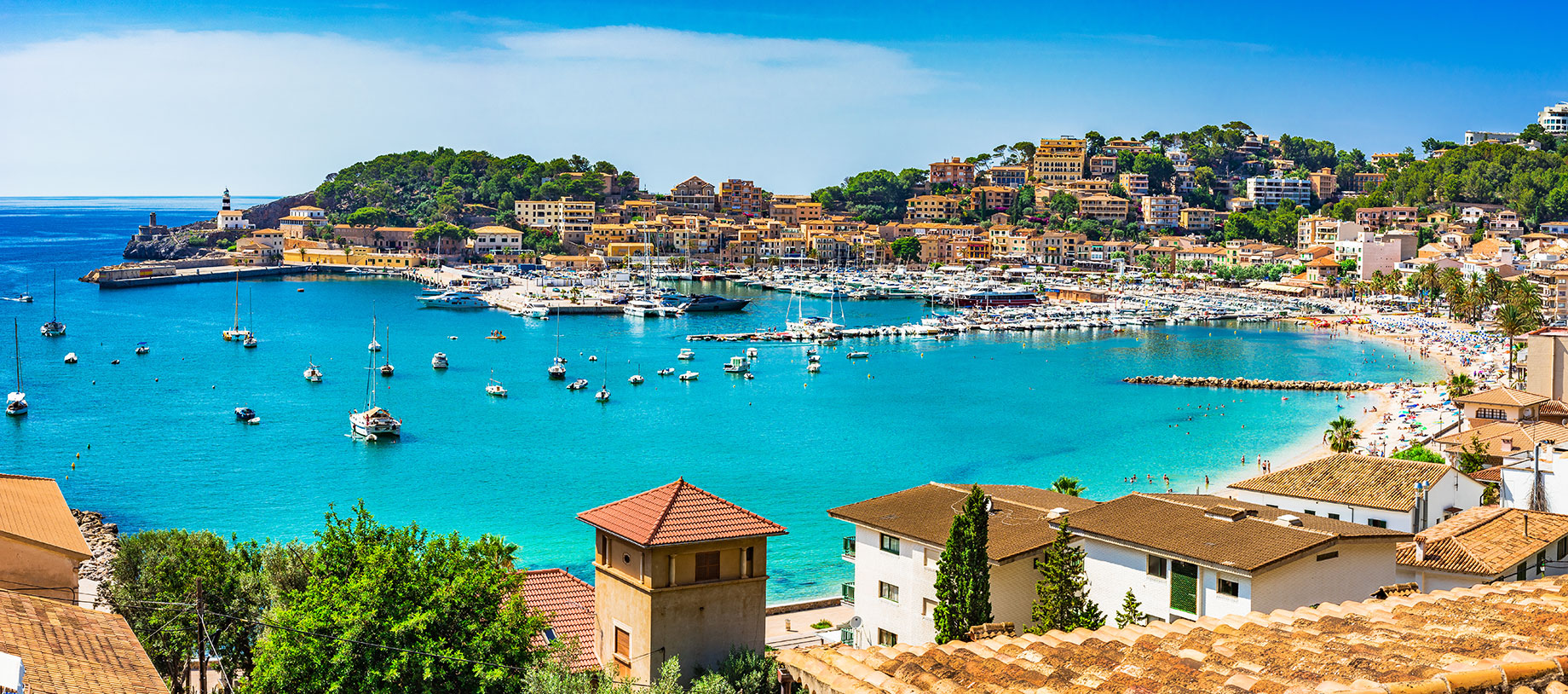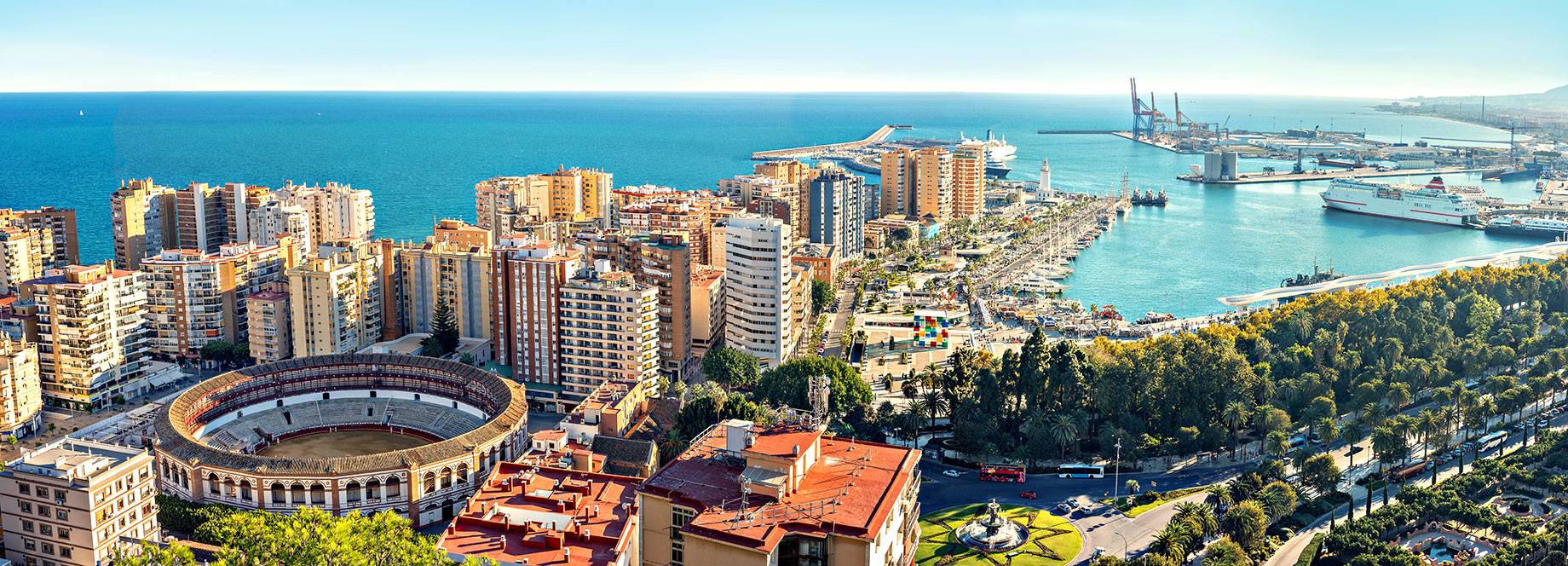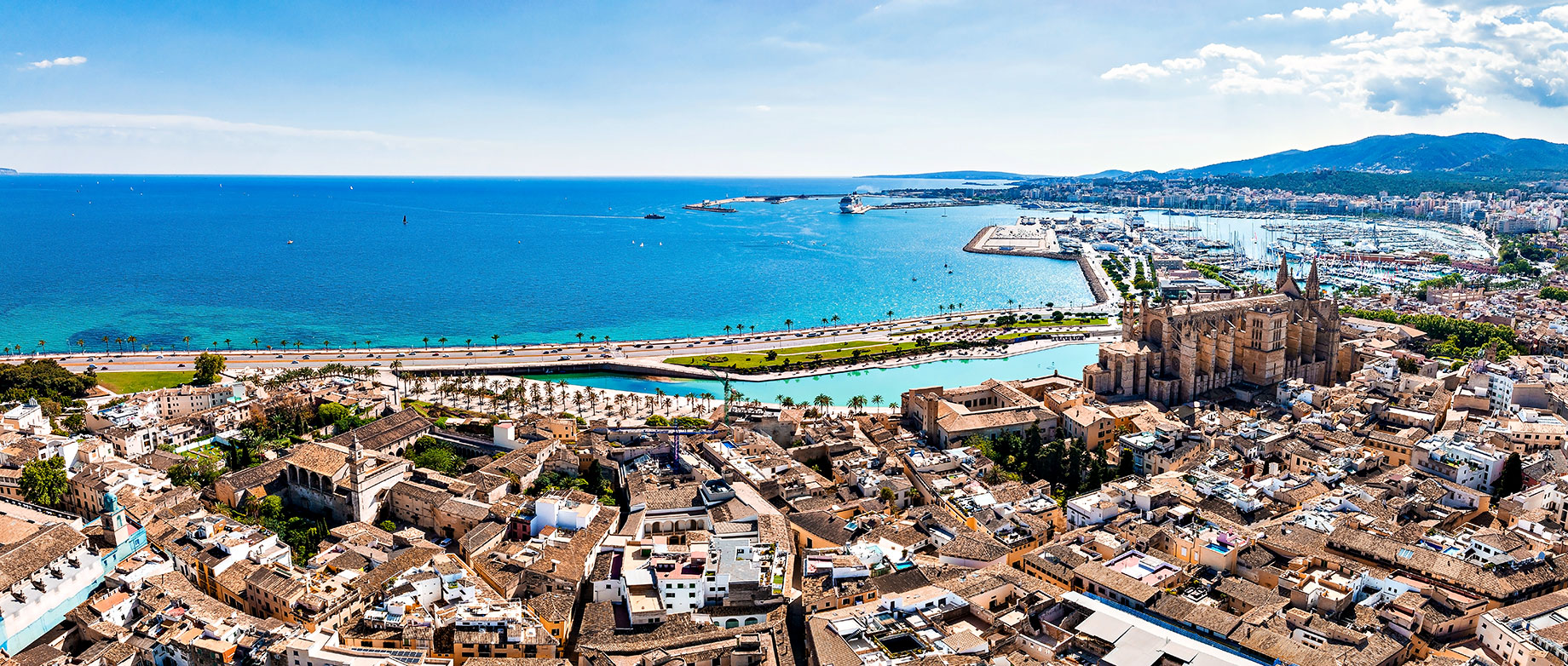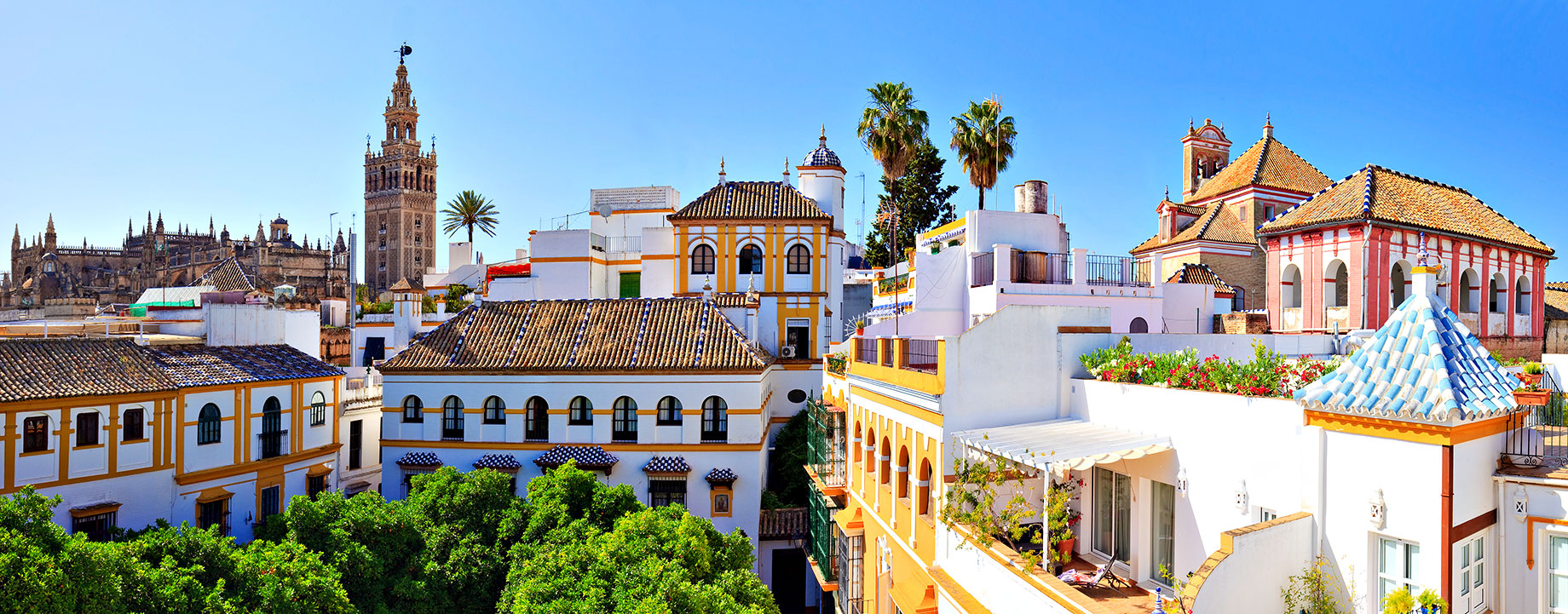
Are you dreaming of owning a slice of Spain, ready to hand over the keys to your Spanish retreat, or perhaps searching for the perfect coastal apartment to rent? This guide is your personal compass, crafted to navigate you through the exciting journey of the Spanish real estate market.
We’ll guide you through the vast landscape of services, decipher the legal jargon, and highlight the costs associated with buying, selling, or renting in Spain. Whether it’s your first venture into the property world or you’re adding another gem to your investment portfolio, understanding the nuances of the Spanish market is essential.
So, are you ready to uncover the secrets and possibilities that lie within Spain’s borders in the European Union? Let’s embark on this adventure together, discovering everything you need to know to turn your Spanish property dreams into reality.
Key Takeaways:
- Buying, selling, or renting real estate in Spain all require different services and processes.
- Before making any real estate transactions in Spain, it is important to understand the legal requirements, such as obtaining an NIE number and property registration.
- Aside from the property cost, additional expenses to consider in real estate transactions in Spain include taxes, notary fees, and legal fees.
What Are the Different Types of Real Estate Services in Spain?

In terms of real estate services in Spain, there are various options available to cater to different needs and preferences.
From buying a cozy apartment in the vibrant streets of Barcelona to selling a luxurious villa overlooking the Mediterranean coast, the real estate market in Spain offers a plethora of opportunities.
House hunting through platforms like Idealista or tracking market trends with data from Brainsre are vital steps in navigating the diverse real estate landscape.
Plus traditional services, specialized financial institutions like UCI Mortgages provide tailored financing solutions that facilitate property purchases and investments.
Buying Real Estate in Spain
Buying real estate in Spain involves navigating through a diverse market, understanding financing options, and complying with legal requirements.
When looking for properties in Spain, potential buyers often start their journey by using online platforms like Habitaclia to browse through listings and find suitable options. In terms of financing, obtaining a mortgage is a popular choice for many buyers, and banks in Spain offer various loan packages to foreign investors, which can be tailored to their preferences. Utilizing tools such as a mortgage calculator can help buyers estimate their monthly payments and determine their budget more accurately, empowering them to make informed decisions throughout the buying process.
The legal aspects of purchasing real estate in Spain are essential, with considerations like the Golden Visa program offering residency to those investing a certain amount in property. It’s crucial for buyers to obtain a Numero de Indentidad de Extranjero (NIE) before finalizing any transactions to ensure legal compliance.
Selling Real Estate in Spain
When selling real estate in Spain, it is essential to prepare the property, find potential buyers, and navigate the negotiation and transaction processes.
One crucial aspect of preparing the property for sale is to ensure it is in top condition, addressing any maintenance issues and enhancing its appeal to potential buyers. This may involve staging the property to highlight its features and advantages, as well as conducting necessary repairs or renovations.
Once the property is ready, the next step involves identifying potential buyers through various channels such as real estate agents, online platforms like Airbnb, or networking within the industry. Engaging with interested parties and showcasing the property effectively is key to attracting serious buyers.
During the negotiation phase, it is important to have a clear understanding of the market trends, pricing strategies, and the Wypo legal regulations governing real estate transactions in Spain. Skillfully negotiating terms and agreements can lead to a successful sale while protecting the seller’s interests.
Renting Real Estate in Spain
Renting real estate in Spain offers flexibility and various options, catering to both short-term and long-term accommodation needs.
When entering the Spanish rental market, tenants often have to navigate through different types of rental agreements, ranging from short-term vacation rentals to long-term leases. It’s crucial for tenants to be aware of their rights under Spanish rental laws and regulations to ensure a smooth renting experience.
Platforms like Fotocasa have become increasingly popular among both locals and expats searching for rental properties, providing a wide range of options across Spain. Expatica, an organization catering to the international community, also offers valuable resources and guidance for expats looking to rent properties in Spain.
What Are the Legal Requirements for Real Estate Transactions in Spain?

Understanding the legal requirements for real estate transactions in Spain is crucial to ensure a smooth and compliant process.
One of the key aspects to consider is obtaining a NIE number (foreigner identification number), which is mandatory for any financial transactions, including property purchase, in Spain. It is also important to understand the residency permit requirements for non-EU citizens looking to invest in Spanish real estate.
The property registration process plays a vital role in establishing ownership rights and ensuring legal compliance. Choosing the right legal entity for property ownership, such as UCI Mortgages or considering the Golden Visa program for residency, can have a significant impact on the overall transaction process.
NIE Number
The NIE Number, or Numero de Indentidad de Extranjero, is a unique identification number required for foreigners conducting real estate transactions in Spain. Having an NIE Number is essential for individuals looking to buy or sell property in Spain as it is mandatory for tax purposes, opening bank accounts, obtaining mortgages, and handling various legal processes.
The application process involves completing the required forms and providing necessary documentation such as passport copies, proof of address, and payment of the corresponding fees at the Spanish police station or consulate.
Not having an NIE Number can lead to complications in real estate transactions, including challenges with tax compliance and legal implications, thereby highlighting its significance in the Spanish property market.
Residency Permit
Obtaining a residency permit in Spain is essential for non-EU citizens looking to engage in real estate transactions and reside in the country.
When applying for a Spanish residency permit, individuals must meet certain requirements, such as demonstrating sufficient financial means and obtaining proper health insurance coverage. The process typically involves submitting various documents, attending interviews, and possibly undergoing medical examinations. Upon approval, the permit allows holders to not only live and work in Spain but also provides them with the opportunity to invest in the country’s lucrative real estate market. This permit serves as a gateway to enjoying the diverse culture, vibrant lifestyle, and picturesque landscapes that Spain has to offer.
Property Registration
Property registration in Spain involves formalizing ownership rights, ensuring legal compliance, and providing security to property owners.
When a property in Spain is registered, it establishes a clear record of ownership that is recognized by the law. This process is crucial for protecting the interests of property owners, as it offers significant legal protection against any disputes or claims that may arise.
Whether you own a property in Toledo or Madrid, registering it ensures that your rights as a property owner are safeguarded. Property registration is essential for facilitating smooth transactions, such as selling or transferring ownership, and can also enhance the value and marketability of a property.
What Are the Costs Involved in Real Estate Transactions in Spain?

Real estate transactions in Spain encompass various costs, including taxes, notary fees, and legal expenses, that need to be considered in the budget.
When buying or selling a property in Spain, it is crucial to account for the property transfer tax, which varies depending on the region and is typically around 6-10% of the property value. You should factor in the notary fees, which are usually 0.5 – 1% of the purchase price. Legal expenses, such as hiring a lawyer or engaging in a legal advisory service, will also add to the overall costs of the transaction. These expenses play a significant role in shaping the financial aspect of the real estate transaction and should be carefully planned for.
Taxes
Taxes form a significant part of the costs in Spanish real estate transactions, influencing the overall financial implications of buying or selling property.
Several types of taxes are applicable in these transactions, including IVA (Value Added Tax), Stamp Duty, and Transfer Tax. IVA is a general consumption tax, with a standard rate of 21% for the sale of new properties. Stamp Duty is calculated based on the property’s value and varies between regions. Transfer Tax, known as Impuesto de Transmisiones Patrimoniales, applies to resale properties and is determined by the autonomous communities. These taxes add to the purchase price, affecting the total investment and profitability. Entities like Brainsre provide valuable insights on tax implications and market trends, aiding in knowledge-based decision-making.
Notary Fees
Notary fees in Spain cover the formalization of property transactions and play a crucial role in ensuring legal validity and documentation of agreements.
These fees are usually calculated based on the property value, complexity of the transaction, number of pages in the deed, and the location of the property. The presence of a notary public is mandatory in almost all real estate transactions in Spain, and their role extends to verifying identities, attesting to the authenticity of signatures, and ensuring that the contract complies with legal requirements.
By paying the notary fees, buyers and sellers benefit from the assurance that their property transaction is legally binding and supported by a public record, providing security and peace of mind in the process.
Legal Fees
Legal fees are incurred for legal advice, document verification, and contract drafting in Spanish real estate transactions, ensuring compliance and protection for all parties.
These fees play a crucial role in safeguarding the interests of buyers and sellers, as well as in navigating the intricate legal landscape of property transactions in regions like Palma and San Sebastian. They cover services such as property title searches, ensuring there are no liens or encumbrances, and preparing the purchase agreement to outline the terms and conditions.
The typical costs involved in legal fees vary depending on the complexity of the transaction and the expertise of the legal professionals involved. In Spain, these expenses can range from a few hundred to several thousand euros.
What Are the Steps to Buying a Property in Spain?

Buying a property in Spain involves a series of steps, from finding the right property to completing the transaction with legal formalities.
After identifying the desired property, the next crucial step is to make an offer. This involves negotiations on the price, payment terms, and any additional conditions. Once both parties agree on the terms, a purchase agreement is drawn up and signed.
The subsequent phase typically includes engaging professionals like a real estate lawyer who examines the legal aspects and ensures a smooth transaction. Property inspections and due diligence are crucial to verify the property’s condition and ensure no hidden issues.
Find a Property
The first step in buying a property in Spain is to identify suitable properties that match your requirements and budget, considering factors like location and amenities.
Once you have determined your criteria, you can start your search through various channels. Utilizing online platforms like Habitaclia can help you browse a wide range of properties available in different regions of Spain. Engaging local real estate agents or task-based platforms like TaskRabbit can provide personalized assistance in finding the perfect property that meets your specific needs.
Make an Offer
Once you have selected a property, the next step is to make an offer to the seller, negotiating the price and terms to reach a mutual agreement.
When making an offer for a property in Spain, it’s crucial to consider various factors, such as market trends in locations like Corunna and Barcelona, the condition of the property, and the seller’s motivations.
Crafting a compelling offer involves specifying the price one is willing to pay, proposed contingencies, and the timeframe for closing the deal. Negotiating strategies may include initial low-ball offers to gauge the seller’s flexibility, but it’s essential to maintain a respectful and professional tone throughout the process.
Understanding Spanish property laws, taxes, and regulations is also paramount to ensure a smooth transaction.
Sign the Purchase Agreement
Signing the purchase agreement in Spain formalizes the property transaction, outlining the terms, conditions, and obligations of both the buyer and the seller.
The purchase agreement is a crucial document in Spanish real estate transactions as it sets the framework for the entire buying process. This agreement typically includes details such as the property description, purchase price, payment schedule, deposit amount, and any contingencies or conditions that need to be met. By signing this document, both parties commit to fulfilling their respective obligations and safeguarding their rights under Spanish property laws. It serves as a legal contract that helps protect the interests of both the buyer and the seller, ensuring a smooth and transparent transaction.
Complete the Transaction
Completing the transaction involves finalizing all legal and financial aspects, transferring ownership, and ensuring a smooth transition of the property to the new owner.
Once all the necessary documents have been reviewed and signed, the next step involves conducting comprehensive legal checks to ensure there are no pending issues or outstanding debts associated with the property. These legal checks are crucial and typically involve verifying the title deed, checking for any liens or encumbrances, confirming property taxes are up to date, and ensuring compliance with local regulations.
Following the legal checks, the financial settlements need to be completed. This includes transferring the agreed purchase price to the seller, settling any outstanding fees or taxes, and covering the notary and registration costs.
What Are the Steps to Selling a Property in Spain?

Selling a property in Spain involves a systematic process, starting from property preparation to finalizing the sales agreement and transfer of ownership.
One crucial step is ensuring that the property is in top condition before listing it for sale. This includes decluttering, repairing any damages, and possibly staging the home to enhance its appeal to potential buyers.
Once the property is ready, the next phase involves attracting potential buyers through various marketing channels, such as online listings, real estate agents, and property expos.
- When a potential buyer shows interest, negotiations commence.
- It’s important to have a clear understanding of the property’s value and to set a realistic price.
- Employing strategic negotiation tactics can help secure a favorable deal while ensuring a win-win situation for both parties.
- Once an agreement is reached, the final steps include drafting the sales contract, conducting property inspections, and finalizing the transaction through a notary public to transfer ownership.
Prepare the Property for Sale
Preparing the property for sale in Spain involves enhancing its appeal, addressing maintenance issues, and showcasing its features to attract potential buyers.
Staging the property is crucial to make it appealing to a wide range of buyers. Neutral colors and simple decor can make the space more inviting. It’s also essential to declutter and depersonalize the rooms to help potential buyers envision themselves living there.
Taking care of any needed repairs before listing can increase the property’s value and minimize negotiations during the selling process.
Proper presentation through high-quality photographs and virtual tours can attract buyers from afar, especially in popular regions like Valencia, Madrid, and the Canary Islands.
Find a Buyer
Identifying potential buyers for your property in Spain requires effective marketing strategies, visibility on real estate platforms, and engaging with interested parties.
One effective method to attract buyers for your property in Spain is to utilize targeted online advertising campaigns that reach individuals who are actively searching for properties in the region. Utilizing social media platforms can also be a powerful tool to showcase your property to a broad audience. Engaging with potential buyers through interactive content such as virtual tours, live Q&A sessions, and informative blog posts can help build rapport and trust, making them more likely to consider your property as a viable option.
Negotiate and Accept an Offer
Negotiating and accepting an offer for your property in Spain involves evaluating terms, reaching a consensus with the buyer, and formalizing the agreement.
During the negotiation process in property sales in Spain, sellers often begin by carefully considering the initial offer presented by the interested buyer. If the terms are not entirely satisfactory, a common strategy is to make a counteroffer that reflects the seller’s desired terms. This back-and-forth exchange can continue until both parties arrive at a mutually agreeable price and conditions. In the context of seeking a Golden Visa, buyers might have specific requirements that need to be accommodated within the negotiation process, such as minimum investment amounts or property types.
Sign the Sales Agreement
Signing the sales agreement in Spain binds both parties to the property transaction, finalizing the terms, conditions, and obligations of the sale.
Upon signing this legal document, the buyer and seller are legally obligated to fulfill the clauses mentioned in the agreement. This crucial step protects both parties from any potential disputes that may arise during the transaction process.
The sales agreement typically outlines essential details such as the purchase price, payment schedule, property description, and any relevant conditions or contingencies that need to be met.
From a legal standpoint, the sales agreement serves as evidence of the mutual consent and agreement between the parties involved, establishing a framework for the transfer of ownership.
Complete the Transaction
Completing the property transaction involves legal formalities, financial settlements, and the transfer of ownership, ensuring a smooth transition to the new property owner.
Once all negotiations are finalized, the next crucial step involves conducting thorough legal checks to ensure the property is free from any encumbrances or disputes. This includes verifying land registry details, property taxes, and any outstanding debts connected to the property. Simultaneously, both parties must agree on the financial settlements, including the final purchase price, property transfer taxes, and any additional fees involved. Following this, the transaction progresses to the completion stage with the signing of the official property deed and the registration of the new ownership at the relevant Land Registry Office, marking the successful conclusion of the property sale process.
Frequently Asked Questions

1. What services do real estate agencies in Spain offer?
Real estate agencies in Spain offer a variety of services, including buying, selling, and renting properties. They can also assist with property management, legal advice, and market analysis.
2. How can I find a reputable real estate agency in Spain?
You can find a reputable real estate agency in Spain by asking for recommendations from friends, researching online, and checking reviews from previous clients. It’s also important to make sure the agency is registered and has a valid license to operate.
3. What should I consider when buying a property in Spain?
When buying a property in Spain, you should consider factors such as location, budget, legal requirements, and potential rental income. It’s also important to work with a trusted real estate agency and have a thorough understanding of the buying process in Spain.
4. Can I buy a property in Spain as a non-resident?
Yes, non-residents can buy property in Spain. However, there are certain restrictions and additional taxes that may apply. It’s important to consult a legal advisor and understand the requirements before making a purchase as a non-resident.
5. What is the rental market like in Spain?
The rental market in Spain is competitive, especially in popular tourist areas. Prices can vary depending on location and type of property. It’s recommended to research the market and work with a real estate agency to find the best rental options.
6. How can a real estate agency help me with property management?
A real estate agency can assist with property management by handling tasks such as finding tenants, collecting rent, and maintaining the property. They can also provide advice on market trends and ensure that legal requirements are met.
Final Remarks

Embarking on a real estate journey in Spain is an adventure filled with opportunities and discoveries, whether you’re dreaming of owning a home, selling a property, or finding the perfect rental. This journey demands more than just transactions; it’s about understanding the heartbeat of the market, the legal landscapes, and the unique tapestry of life in Spain. It’s a path best navigated with knowledge, careful planning, and the companionship of trusted experts who can guide you through the complexities and joys of the Spanish real estate world. From the sun-kissed coastlines to the bustling city streets, Spain offers a diverse canvas for all your real estate dreams. By embracing the process with an open heart and an informed mind, you’re not just making financial decisions but stepping closer to the life you envision in this vibrant and welcoming land.
